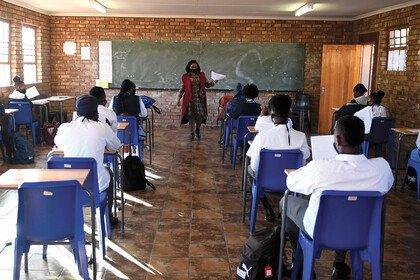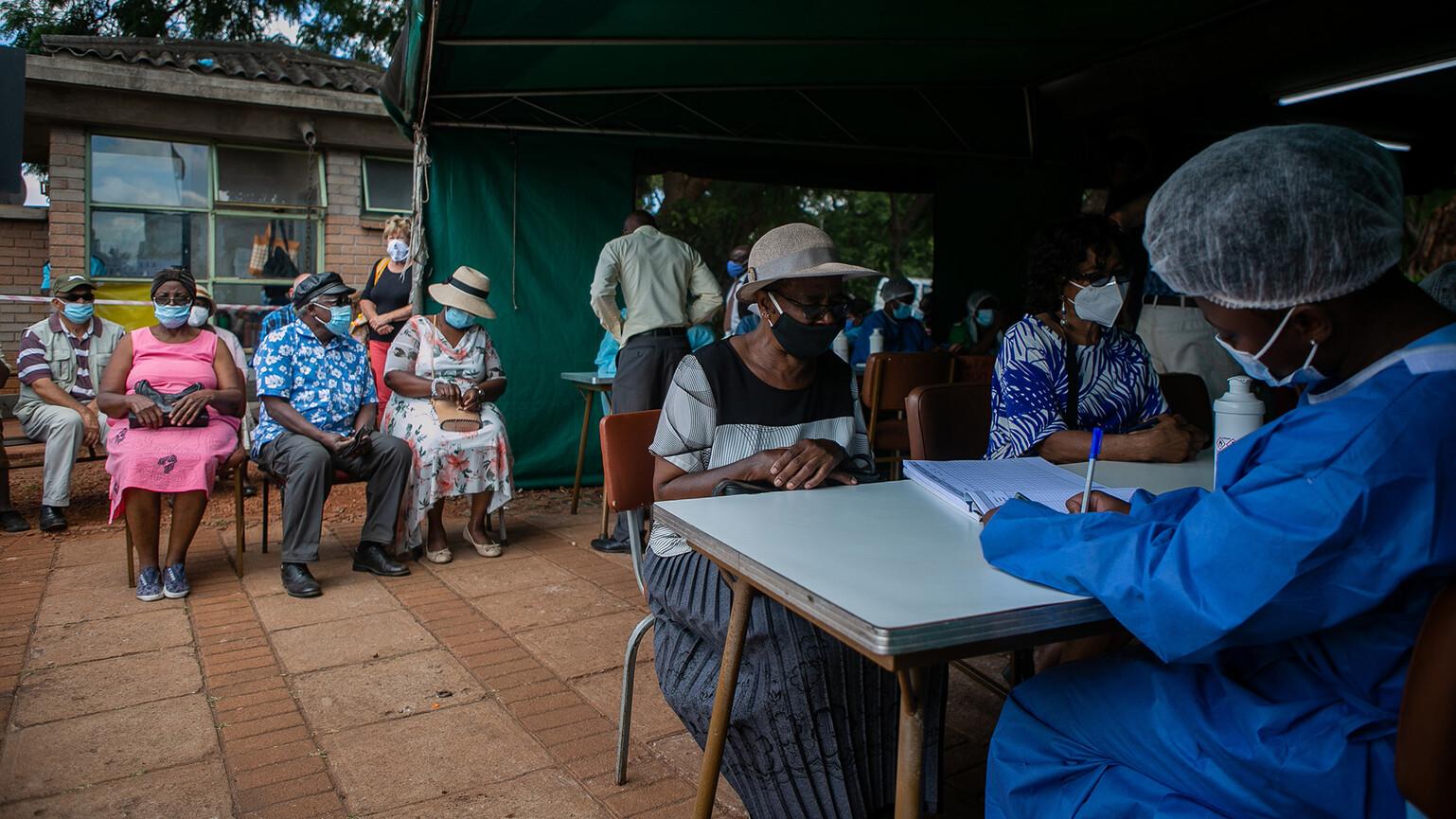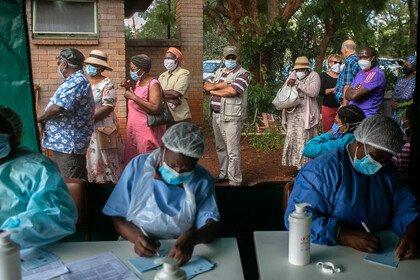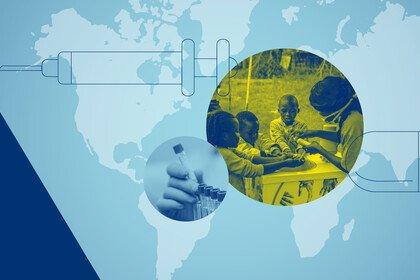
To avoid the next pandemic we must invest in global solutions
The profound social and economic damage of Covid-19 highlight flaws in the systems we have in place to prepare for and respond to infectious disease outbreaks. Beth Thompson, Head of UK & EU Policy at Wellcome, explores new recommendations about how we could avoid the next pandemic.

Tafadzwa Ufumeli / Getty Images
The Covid-19 pandemic has shown the vital role that research and innovation play in protecting the world from the deadliest infectious diseases. But it has also shown the lack of funding for solutions such as tests, treatments and vaccines to be equitably developed and shared.
Even now, with health services collapsing around the world, we’re still waiting for G7 and G20 countries to unite and support a global response.
At the start of the year, the Italian Government, as President of the G20, established an expert panel to recommend how to organise and mobilise financing for future global pandemic prevention, preparedness and response.
Today the panel launched their recommendations in its report A Global Deal for Our Pandemic Age. This calls on the international community not to wait for Covid-19 to be over to invest properly in pandemic preparedness, as the threat of more frequent pandemics is already here.
Preparing for the next pandemic
The panel calls for a doubling of international financing, to $15 billion a year, to tackle major weaknesses in the system, such as infectious disease surveillance, the resilience of national health systems and global capacity to develop and deliver tools like vaccines. Compared to the $10 trillion that Covid-19 has already cost governments, this investment would be exceptional value for money.
Many of the panel’s recommendations focus on optimising and mobilising existing approaches and institutions. While these may look straightforward, together they would transform the world’s vulnerability to pandemics.
One exception is a proposal for a new Global Health Threats Fund to transform surveillance, and substantially increase the global supply of vaccines, treatments, and other medical countermeasures to radically shorten the time taken to respond to future pandemics. The fund would mobilise $10 billion a year, two-thirds of the additional spending the panel is calling for. Its priorities would be set by a new Global Health Threats Board, complementary to the head of state level Global Health Threats Council proposed by the Independent Panel for Pandemic Preparedness and Response.
Although the fund would be new, it would have a critical role in facilitating the work of existing health organisations and would complement, not substitute for, other investments by governments, philanthropy and the private sector.
All of these recommendations will require countries to collaborate more with a better funded World Health Organization (WHO). To date, the WHO has done an extraordinary job to protect lives and improve health of people globally, but it is only as strong as the support it receives.
WHO needs stronger political support and more flexible and predictable funding if all nations are to have the best possible chance to end this pandemic and protect the world from the next.
Covid-19 is a stark warning about the need to do things better. We call on the G20 to close the shortfalls in the Covid-19 pandemic and to act to avoid the next. The world can’t afford to wait.
‘A Global Deal for Our Pandemic Age’ sets out solutions and investments to scale up pandemic preparedness and reduce the risk of future pandemics.
Download the full report “A Global Deal for Our Pandemic Age”
Two independent think tanks, Bruegel and the Center for Global Development, undertook analysis and writing as input to the panel’s deliberations and final report. Wellcome and the US National Academy of Medicine provided the panel’s Administrative Secretariat. Wellcome also provided financial contributions to these project partners to supplement their in-kind contributions.


